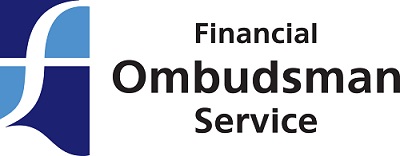Athena Receivables Management Alternative Debt Recovery
We appreciate that within your busy work schedule debt recovery will not be high up on your important list of things to do. Sometimes your company may lack the time or even sufficient personnel to proactively chase your late payers which can then potentially have a knock on effect to your cash flow. Athena Receivables Management was established exactly for that reason; to be an extension of your business thus saving you valuable time and money by utilising our debt recovery services.
We also understand that maintaining client relations is paramount for every business and therefore with our professional debt recovery services, we aim to resolve matters quickly and amicably without causing any detriment to your good reputation.
If your accounts remain unpaid we can seamlessly escalate them by using our debt recovery services. By providing the continuity and our effective experience into your process, your cash flow problems will be a thing of the past.
Our debt recovery services will be tailored to your specifications, we will give you the options and together we can agree how to pursue your debtors.
Athena Receivables Management can manage your accounts receivable function fully, partly, or on a one off project basis. Together we can determine what part and at which stage you would like to outsource your accounts receivable process. Our commission rate can be as low as 5%, of any monies recovered, depending at which stage the account is passed over to us. The sooner it is passed to us, the higher the collection rate and therefore our commission being lower. It’s as simple as that.
Athena Collections
Our pre-legal debt recovery services are designed to maximise collections without the requirement of taking any legal action against your debtors and therefore being no need to instruct solicitors who typically charge by the hour.
Our proactive approach usually gets the desired result but we like to be open and transparent about our debt recovery services and no matter what anyone says this is not always the case. Some debtors will just not pay for a number of reasons; cash flow is tight, they have not ‘received’ the invoice, they are insolvent, the debt is disputed, their circumstances have changed etc… We will establish this at the earliest possible opportunity and relay the information back to you to allow you to make an informed decision.
There are various options we can give you at this point, all of which will be fully explained along with the advantages / disadvantages of each one so you have absolute clarity of the process ahead.
Alternatively, you can give us parameters and we will work within those to collect the outstanding debt on your behalf.
Legal & Insolvency
In the unfortunate event that payment is not forthcoming during the debt recovery stage then taking legal or insolvency action may be what it takes to get your debts paid. Ultimately this is a choice you need to make whilst taking into account the other options we have given you.
With over 15 years of experience in providing debt recovery services we can provide you with our recommendation for the best course of action and our reasons why.
If you have decided you want to take the matter further because you simply want what is rightfully yours or if it is a matter of principal then depending on the circumstances there are two routes you can go down. 1) Issuing a claim in the County / High Court 2) Insolvency proceedings in accordance with the Insolvency Act 1986. Insolvency proceedings can only be issued if the debt is not disputed or you have already obtained a county court judgment and it is also subject to a monetary threshold (£750 for companies and £5,000 for individuals).
No one wants a county court judgment against them or being wound up or made bankrupt because this can have severe financial repercussions. Both have their pro’s and con’s but most of all it is choosing the right course of action that will determine whether you get paid or not and that’s where our proven track record of recovering over £30 million pounds in the last 5 years is testament to what we do best.
Together with our professional partners we will give you the support and service you expect to receive as a valued client.
Please also see our Enforcement section for the various types of action you can take.
Enforcement
If you have already obtained a judgment against your debtor but they still haven’t paid we can still help you to recover your debt. By combining our debt recovery services and utilising our professional partners we will look to get back what is rightfully yours.
Once all debt recovery efforts have been exhausted we will then review the file and provide you with our findings along with our recommended course of action.
You have several options available to you but again it is all about choosing the right one for your circumstances. We can help you decide by drawing upon our previous debt recovery experience and knowing what works where…
The following types of enforcement may be available to you*:
Warrant of Control – Instructing a county court bailiff to recover sufficient goods to cover the value of your judgment debt.
Writ of Control – Similar to the Warrant of Control but utilising High Court Enforcement Officers instead. High Court Enforcement Officers tend to have a higher success rate than County Court Bailiffs.
Attachment of Earnings – If your debtor is an individual and you know who their employer is, you can make an application to the court to order the employer to deduct monies from the debtor’s wages to pay you.
Statutory Demand – A legal document that once served effectively gives the debtor 21 days to pay the full amount owed or come to an arrangement to your satisfaction. Should the debtor fail to comply with the demand after 21 days have elapsed then you are at liberty to issue a winding up or bankruptcy petition.
Winding Up or Bankruptcy Petition – If the debtor is wound up or made bankrupt this effectively means that an Official Receiver or Trustee will be appointed to liquidate the debtor’s assets and pay creditors out of any funds raised.
Charging Order – If you know of any property the debtor may own then you can make an application to the court to allow you to place a charge on their property, similar to a mortgage. Once the charge is registered you are considered a secured creditor and you have priority over unsecured creditors in the event of the property being sold or the debtor being wound up or made bankrupt. Consideration should be given to prior charges and potential equity.
Order for Sale – Once a Charging Order is registered you can apply to the court for an Order for Sale which forces the sale of the property.
Order to Obtain Information – The debtor must attend court in order to be questioned about their means and any other relevant matter to enable you to enforce your judgment. If the debtor does not comply with the order given by the court then they may be imprisoned for contempt.
Third Party Debt Order – If you know the debtors bank details, (usually account number and sort code) an application can be made to the court to freeze the debtors bank account/s. Any money in the account can then be paid to you to clear the debt. A Third Party Debt Order can also be sent to anyone who owes the debtor money. Consideration should be given to the timing of the order to ensure sufficient funds are in the account.
*A brief description explaining what debt recovery services involve, for full details and eligibility please contact us. The above information is not exhaustive and for guidance purposes only.
Tracing
Typically, if a debtor is not engaging with you they are either avoiding payment or they may have left the address you have been provided. Either way a trace may be required at this stage, which is one of the debt recovery services we provide.
We can help find your debtor if they have absconded or if you just want to verify that they are still resident or living as stated. We utilise a number of methods to locate your debtor and we will usually be able to confirm the validity of the trace with providing you dates and sources of information obtained.
In the event we supply you with an address that the debtor has also subsequently left we will conduct further trace enquiries free of charge*.
We can also undertake employment tracing if you are considering issuing an Attachment of Earnings or looking to serve legal documents if the debtor is being evasive. To be able to conduct an employment trace we will require a current residential address alternatively we may be required to conduct a trace first.
*This is not applicable if contact with the debtor has been made at the address provided.

Pre-sue enquiries / asset checking
As part of our debt recovery services, you may wish to consider conducting a pre-sue enquiry before you embark on the debt recovery process or engage with any legal, insolvency or enforcement action. The information provided should be sufficient for you to form a view of the debtor’s circumstances and to decide whether it is viable to proceed any further.
Typically, we will be able to advise you if the debtor is already bankrupt, deceased, in an Individual Voluntary Arrangement (IVA) or Debt Relief Order (DRO). We will be able to advise you if they have any existing county court judgments (CCJ’s) whether satisfied or not, if they own the property you have instructed us to collect the debt and if so an estimated property valuation along with any other relevant information relating to the property or whether there are any indicators to suggest the debtor may have absconded.
In the case of a debtor being an incorporated company, we can provide you with information which will indicate the company’s financial stability, risk score, ownership & directorship details, financial accounts and shareholding. The information provides a comprehensive view of the company and it should allow you to make an informed decision as to whether or not to pursue the matter any further.
We do not want you to throw good money after bad and therefore as part of our debt recovery services a pre-sue enquiry might be a good investment prior to incurring any legal costs.
Process Serving
Process servers are very useful within the debt recovery process and one of the debt recovery services we provide, they are typically needed to serve legal documents. After serving the documents, process servers must provide actual evidence that can be relied upon in court to show that the legal papers were served. The verification that is offered is normally referred to as a certificate of service, which lays out in detail the process undertaken to serve the documents including method of service, date, time and location. Process servers are required to serve papers in the correct manner in accordance with Insolvency Rules and Civil Procedure Rules.
Trending now; debt recovery services, accounts receivable collection services, professional debt recovery services, services

Segmentation
In some cases, you may have a large portfolio of non-performing debtors which you don’t have the time or resource to review on an individual basis. As part of our debt recovery services we can segment your portfolio into different categories to allow you to focus on those that have a higher propensity to pay. Having had direct hands on experience we know exactly what is required to transform your debts from non-performing to performing and weed out the ‘wont pays’. For more information on how we can achieve this please contact us.









